What Is chrome //flags settings?
Chrome flags enable you to experience some experimental features that are not available in standard Chrome. For some users, the standard Chrome can meet most of their needs. However, for power users and those who are willing to test new features, they can go to the chrome flags settings page to check out Chrome flags. In other words, chrome //flags settings is the page where you can manage the chrome flags to customize your experience for features.
How to Activate/Enable Chrome Flags in the Chrome //flags settings Page?
Here, we will show you how to access the chrome //flags settings page to set Chrome flags:
Step 1. Launch your Google Chrome.
Step 2. Enter chrome://flags/ in the address bar and hit Enter.
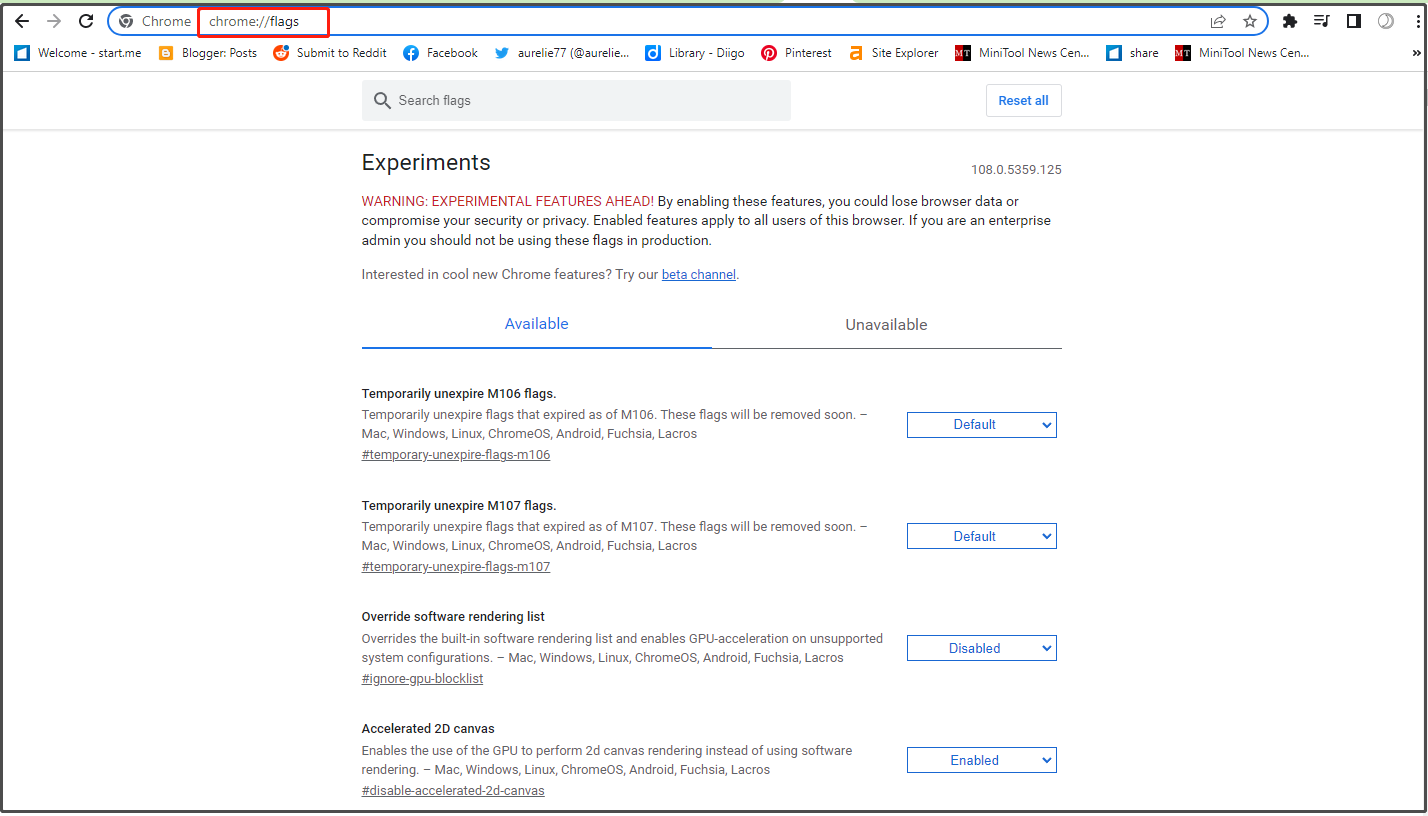
Step 3. Now you are on the main page of chrome //flags settings. If you want to locate particular chrome flags, press Ctrl + F altogether, type the keyword and hit Enter.
Step 4. After locating the desired Chrome flags, select Enabled from the right side and choose Relaunch to make the changes effective.
Not all the chrome flags are stable and they may trigger some unintended results, so you must read the detailed instructions for each step carefully.
How to Reset/Disable Chrome Flags in the Chrome //flags settings Page?
If you have enabled some Chrome flags in chrome //flags settings and receiving some unwanted results, it is not hard to disable them: just type chrome://flags/ in the address bar > hit Enter > locate the enabled flags and choose Disabled > hit Relaunch.
Or you can choose to reset your Google Chrome flags to its default settings: go to the chrome //flags settings page > hit Reset all in the top-right of this page > click Relaunch.
Best Chrome Flags Settings
After having a basic understanding of the concept of chrome flags and how to enable/disable/reset them, we will show you the 10 best Chrome Flags settings that boost your browsing.
chrome://flags#enable-parallel-downloading: enabling this flag will make the downloads on your system faster by dividing them into smaller parts.

chrome://flags/#enable-reader-mode: this flag adds a reading mode to your Google Chrome. It makes reading the news and other content much easier by eliminating the clutter on web pages.

chrome://flags/#side-search: its function looks much like the sidebar in Microsoft Edge. Once you enable it, you can visit the websites that you are already on rather than opening a new tab.

chrome://flags/#upcoming-sharing-features: this adds a tool under the Chrome share menu in the address bar and it makes taking a screenshot of your webpage easier.
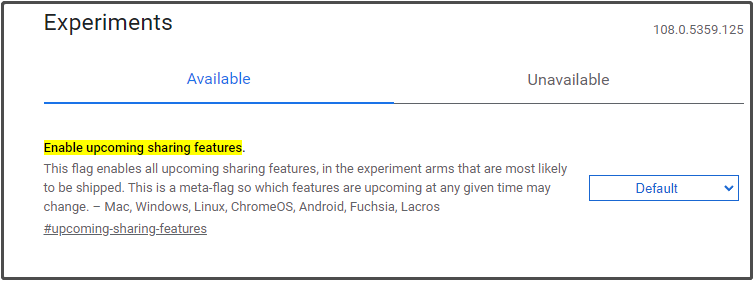
chrome://flags/#enable-force-dark: this chrome flag will turn the whole background black. If you use your computer in a dark room, your eyes will feel better in the dark mode.

chrome://flags/#enable-gpu-rasterization: enable this chrome flag to boost Chrome speed. Usually, Chrome uses CPU power to complete the rasterization process. If you have a dedicated GPU in your computer, this process can be completed by GPU.

chrome://flags/#smooth-scrolling: it can heavily improve your readability. After enabling this flag, the web page will scroll smoothly and it will be easy for you to see the content while fast scrolling. This flag is pretty useful when you need to skim through content quickly.
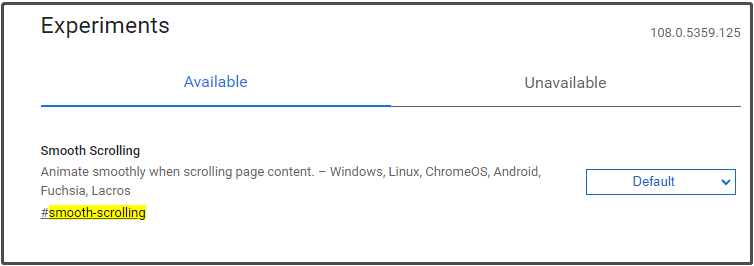
chrome://flags/#back-forward-cache: if you often use the forward and backward buttons in Chrome, this flag is perfect for you. it can save data and navigate faster because the cached data allows you to navigate to the same page without using an internet connection.
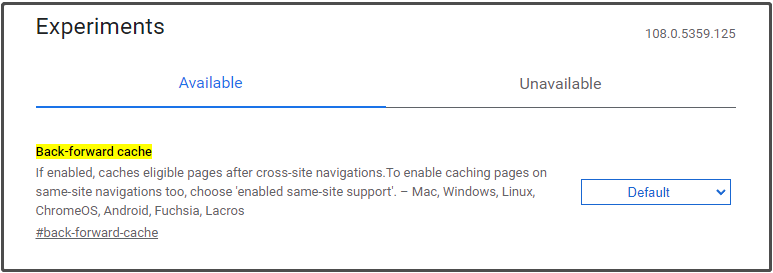
chrome://flags/#tab-hover-card-images: it will show an image of the tab along with page information. After enabling it, you can compare two web pages by opening them in two tabs side by side.
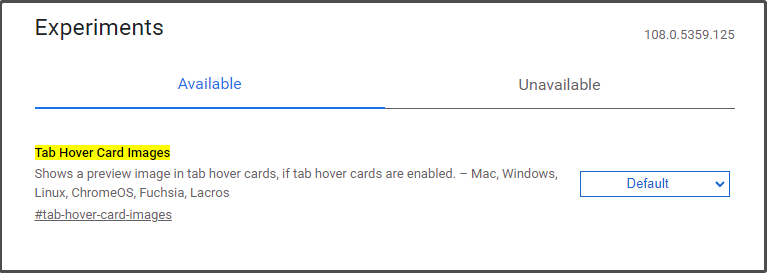
chrome://flags/#show-autofill-type-predictions: as the name suggests, this flag enables you to add auto-fill text through its prediction associated with the information that you have entered.

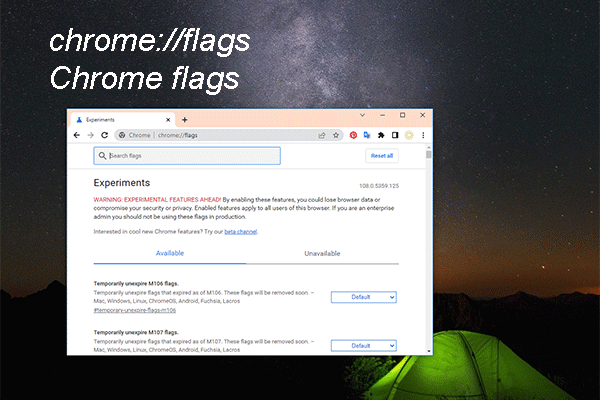
User Comments :